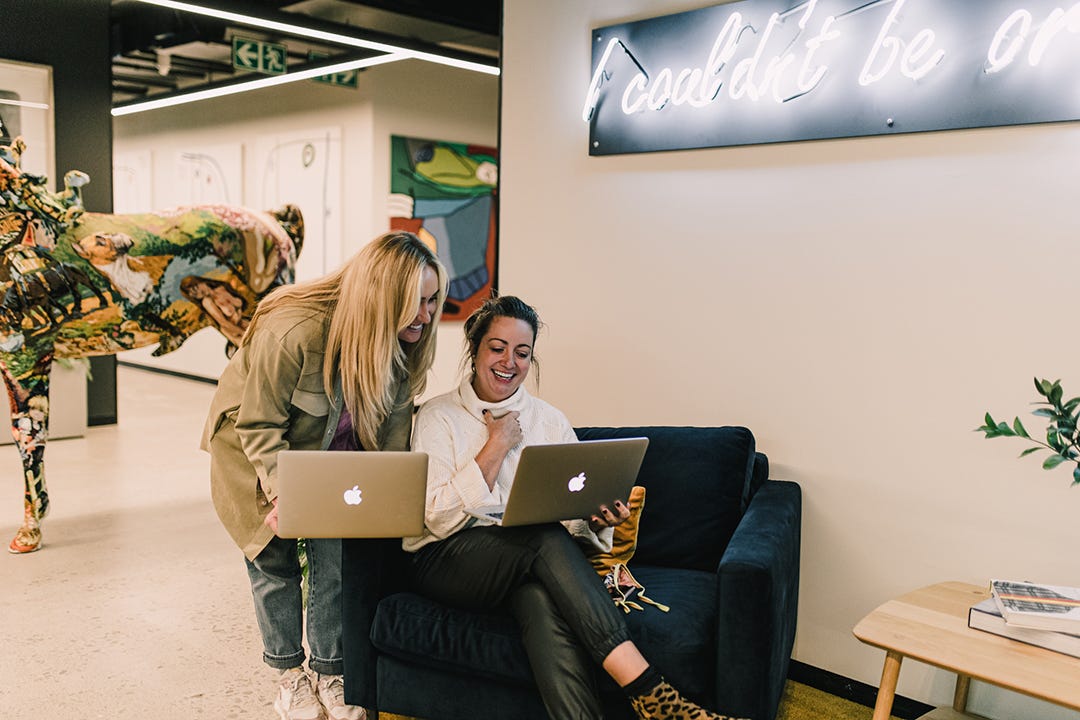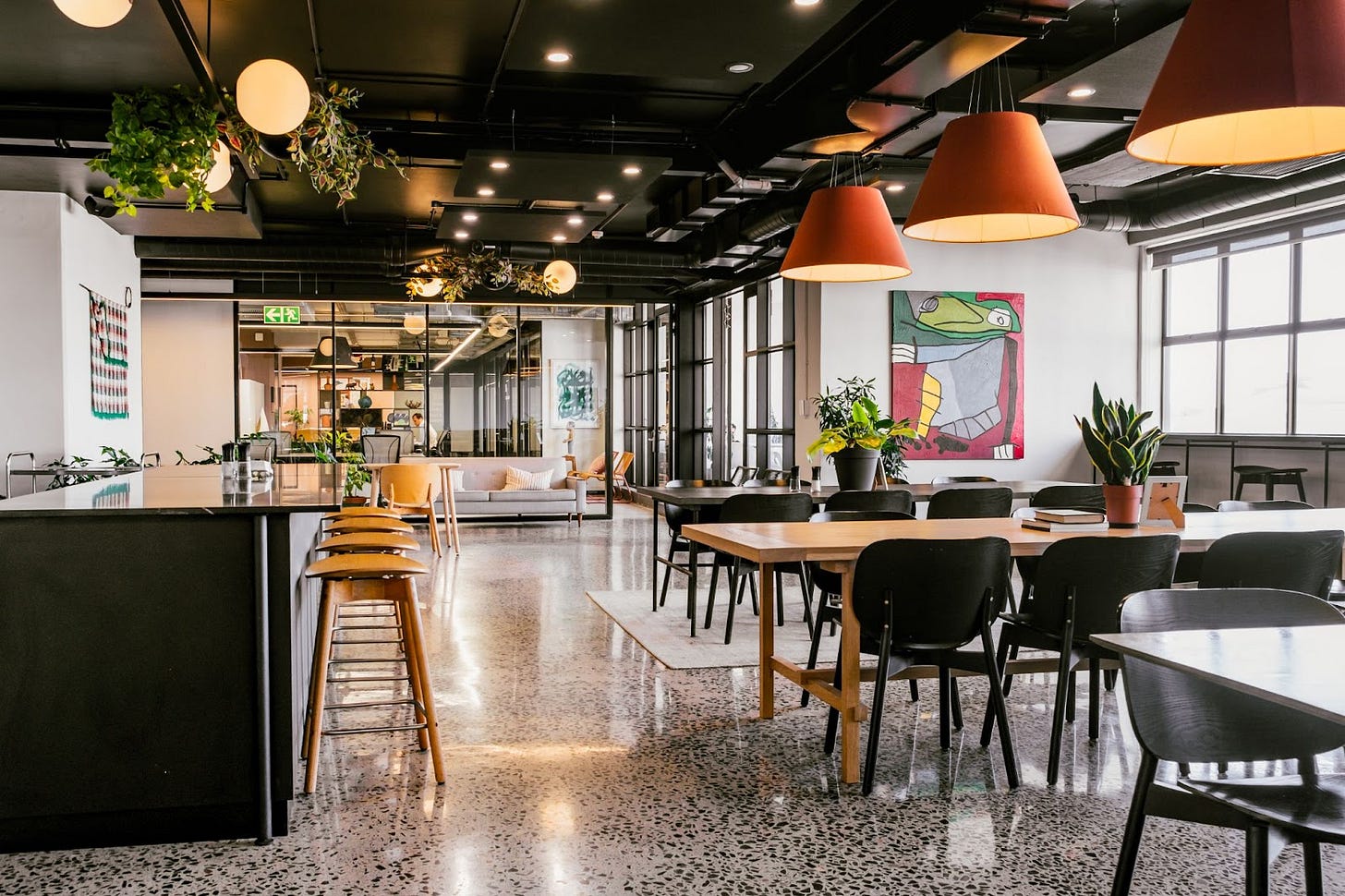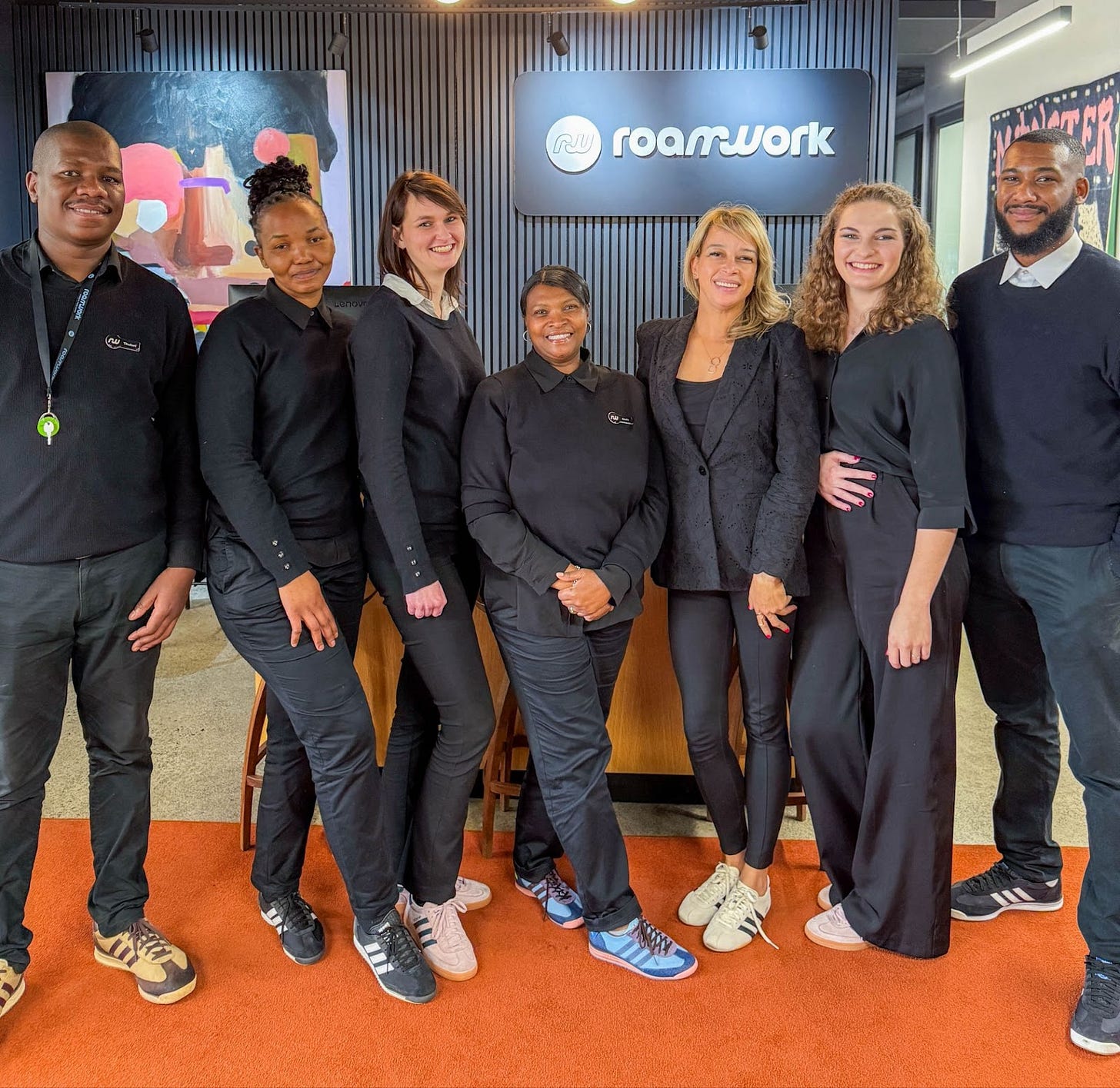How to Scale a Coworking Space Without Losing the Hospitality Edge, with Darren Epstein
Practical lessons on what it takes to expand a workspace that still feels personal
With a career spanning over two decades in commercial property management, Darren Epstein has a unique combination of technical expertise, entrepreneurial spirit, and a passion for building community-driven workspaces. Originally trained as a mechanical engineer, Darren’s transition into property began in the early 2000s, when he joined a fast-growing commercial property management business.
Over the years, Darren has managed a portfolio of offices, retail spaces, and a hotel, gaining hands-on experience in hospitality. By 2018, he was ready for a new challenge.
As the coworking movement began to gain traction globally, Darren saw an opportunity to fuse interests in technology, design, and service into a more human-centric office model. This led to the founding of Roamwork, located in Cape Town’s up-and-coming East City Precinct.
What started as a single floor in a refurbished building has since grown into a 4,500-square-metre hub, delivering high-quality private offices and tailored services. In this interview, Darren shares the lessons learned as Roamwork scaled and how his team perfected the art of hospitality.
1. What inspired the founding of Roamwork, and how has the space evolved since opening?
Darren: Providing services and hospitality to people getting on with their businesses was something I wanted to do while working in commercial property back in the early 2000s. However, it required onsite management, and at that stage, we couldn’t justify the resources.
In 2018, I was looking for something new. The property management company I worked with bought and redeveloped this building on Harrington Street, gutting the floors and creating five stories of offices and parking while retaining the envelope of the building.
We took a lease for a 2,200-square-metre space on the second floor and created a flexible workspace, predominantly private offices. We installed SALTO Systems and looked at our tech right from the start.
Back then, shared workspaces weren't a big thing in South Africa, although WeWork was the big driver in marketing the coworking model internationally.
People think coworking is just about hot desks and a big open space — we have to educate them that it’s more than that. You can have a private office with all the services covered: furniture, meeting rooms, WiFi, cleaning, tea and coffee. That's always been our challenge.
We opened in December 2018, originally, under a management agreement with another coworking brand. When COVID hit, the space wasn’t financially sustainable under that model. After taking over in August 2020 and rebranding as Roamwork, we took a hands-on approach and gradually filled the space. By 2022, demand had grown so much that we were turning people away. By that point, people understood the benefits of taking smaller offices over working from home.
In 2023, the landlord assigned the fourth floor to us. After changing the layout and adding a 100-square-metre event space, we now manage 4,500 square meters in this building. We employed an event manager to work with our community manager. In a coworking space, you need an event space for your members. It’s also used by people outside. The event space is a fantastic addition to our offering, but we have lots more opportunities to grow and host additional events.
2. The workspace design at Roamwork is striking and thoughtfully curated. What was the vision behind it, and how did you bring that to life?
Darren: The building lent itself to an industrial feel - steel and concrete, with exposed services and soffits. The shopfronts were specifically designed to create a slim steel finish, utilising aluminium shopfronts.
However, the industrial look brought a few downsides. Acoustics, for instance, is a massive bugbear of mine. I can hear a slight echo, and I want to fix it. But we work on that sort of thing as we go along, like putting carpets into the fourth-floor offices.
When we started, we densified the space with offices. But, it’s a deep building, and we initially battled to rent out the central core offices, which lack natural light. These were only filled once all the window offices were occupied. When we designed the fourth floor, we left the central core as open-plan to provide more hot desking and breakout space. The challenge now is filling this space for profitability.
Earlier this year, the space was useful in accommodating a national client on short notice. They required workspace for 100 employees for a few months in between office moves. It worked out so well, they didn’t want to leave when their new offices were ready!
Throughout our space, we have hot-desk seating that grows and contracts depending on the time of year. Besides our monthly hot desk plans, we offer Bulk Day Passes of 5, 10, 15, and 20-day passes, valid for three months, and can be shared with friends and partners. In the spring and summer months, many digital nomads travel to Cape Town. These offerings are ideal for their needs, giving them the flexibility to work and travel in the city.
Our benchmark for offices is 80% occupancy. We have the full range from one-seaters right up to a 40-seater. We’ve spread out hot desks and dedicated desks, but find that most people migrate to an office eventually.
The landlord wanted to reactivate the building lobby, so it was given to us. The lobby has a Bootlegger coffee shop — a popular local brand operating two satellite cafes on each floor, providing coffee and food for our members and visitors. Besides the hot desking space in the lobby, we also added two meeting rooms to form part of our offering.
We’re located on the fringe of the City Bowl (the suburban area where people live), so we’re appealing to people who want to use meeting rooms or get out of the house for work. There are a few things we're working on here.
3. What benefits does integrating the in-house art gallery and other services bring to your community?
Darren: We provide offices, but we like to ask: “What else do people want?” For example, we built a studio with an infinity curve in our workspace in collaboration with one of our members who runs a creative agency. We hoped it would offer something different and useful for our members, expanding our reach to external users.
It was a fantastic idea, but it didn’t work for several reasons – it was too expensive for people to shoot there, and there were acoustic challenges. This year, we turned it into an office for one of our members whose business has grown. This turned out to be a better use of the space.
We also built one of our fourth-floor rooms as a podcast studio initially, providing acoustic treatment within. We intended to offer the full service: studio, equipment, production, but in the end, we felt that most people would bring their own. The room is ultimately multipurpose and occasionally used as a podcast studio, but it’s mostly used as a meeting room.
The lesson is: investing and providing unique and specialised services doesn’t always work out. The best option is sticking to our core of ‘offering space’ and aligned services.
The art at Roamwork is more than just a backdrop – it’s a defining feature of the space. Some pieces form part of a private collection, while others have been curated through Art Gazette, an initiative connecting contemporary artists with global workspaces. The result is a bold and eclectic mix, with a strong leaning toward abstract works. Visitors often pause, taking it in. The art is one of those unexpected elements that make the space feel alive and deeply considered.
During my attendance at Coworking Europe 2023 in Porto, I toured a workspace with great furniture, but I immediately noticed these white walls, and felt that something was missing. We’re fortunate to have our art collection; it makes a huge difference to people’s environments.
4. Community is clearly at the heart of Roamwork. How do you support your members and help them build meaningful connections?
Darren: I sometimes feel that we don’t hold enough community events, but members seem to connect naturally within the workspace, while getting a coffee at the cafe, or preparing lunch in the canteen. They work in a broad spectrum of businesses and creative talent — I believe this diversity is the catalyst for people to feel comfortable connecting with each other.
Saying that, our broad community has been key to our success. I don’t believe in having a specialised offering. We have people in finance, engineers, interior designers, architects, and digital media professionals.
I’m driven by the ability to connect people. Social media is brand building, but Google brings the leads in, and word of mouth. People who visit for a meeting are intrigued by the environment, and they always ask for a tour. At some point, these interactions convert visitors into members.
As coworking professionals, it’s important to know more about your members’ expertise and their businesses. This helps connect people within the space, especially new members.
We intentionally gave our IT support contractor an office so they can be ‘on call’ to deal with any IT issues. By being here, they’ve also managed to secure new clients, helping their business grow.
Likewise, a friend of mine with a successful online electrical supply company moved to Cape Town from Durban, taking up a hot desk and eventually an office. In no time, he was connecting with other members, like interior designers and architects, and built a presence in Cape Town. This is a difficult place to break into, but he was very open to meeting people and connecting within the space. He’s now expanded his team of electricians and opened a retail outlet shop in the city.
It’s one of several stories where success has led to the loss of members. But it's extremely satisfying to know that Roamwork played a role in their success - others will follow!
Many international companies are opening offices in Cape Town and utilising local talent. For instance, a US company in the legal field joined us last year with a 25-seater office. They’re growing and have just moved to a 40-seater office. They mostly work on USA time zones (some of them work until midnight), but we’re open 24 hours. They could find their own office, but they don’t want that; they enjoy our services and support.
A UK media company now occupies the 25-seater office that the lawyers moved from. We’re also getting another office ready for a UK marketing company. We anticipate them growing, so my concern is that we run out of space for those teams, but we’ll look at the options when the time comes.
We pride ourselves on creating flexible options for clients; a finance company just joined us on a mixed membership package – an 8-seater office with dedicated desking in the open-plan area. They also purchase Day Pass Packages for their hybrid employees, which not only offers flexibility, but also allows them to keep their costs down.
5. Roamwork is located in one of Cape Town’s most vibrant neighbourhoods. What role does Roamwork play in the area's continued growth?
Darren: Roamwork is located in the East City Precinct, on the fringe of Cape Town’s CBD, a hub where people have been returning to since the early 2010s. There are art galleries and restaurants — this neighbourhood has grown, and it’s become quite a buzz. In the last year, some short-stay aparthotels have been built here, with plans for new restaurant openings and other retail within the node.
We’re redoing our original second-floor reception area, which is exciting. It’s always been our main barista cafe where the team welcomes members and guests to the space. We plan to create a new coffee bar with a member's soft seating lounge. The coffee shop is a meeting point where people connect while waiting for their coffee — it’s surrounded by general activity at the front desk.
Our brilliant team is vested in our members' and guests’ well-being. I heard about Will Guidara, and the one story that stuck with me was about the New York hot dogs. When a guest broke her shoe’s heel, I asked my hostess to buy some glue from the shop around the corner. It was a small gesture that didn’t cost much, but our guest will remember it for a long time.
Our small team has mostly been with us from the start. They all know what is expected of them and continuously go the extra mile so that members and visitors feel at home.
About People Make Coworking
Celebrating the people who make up the fabric of the global coworking movement, People Make Coworking is an interview series where coworking founders share their journeys of building communities and workspaces.
If you’d like to share your story in ‘co’, please get in touch. I’d love to speak with you for a future feature.








